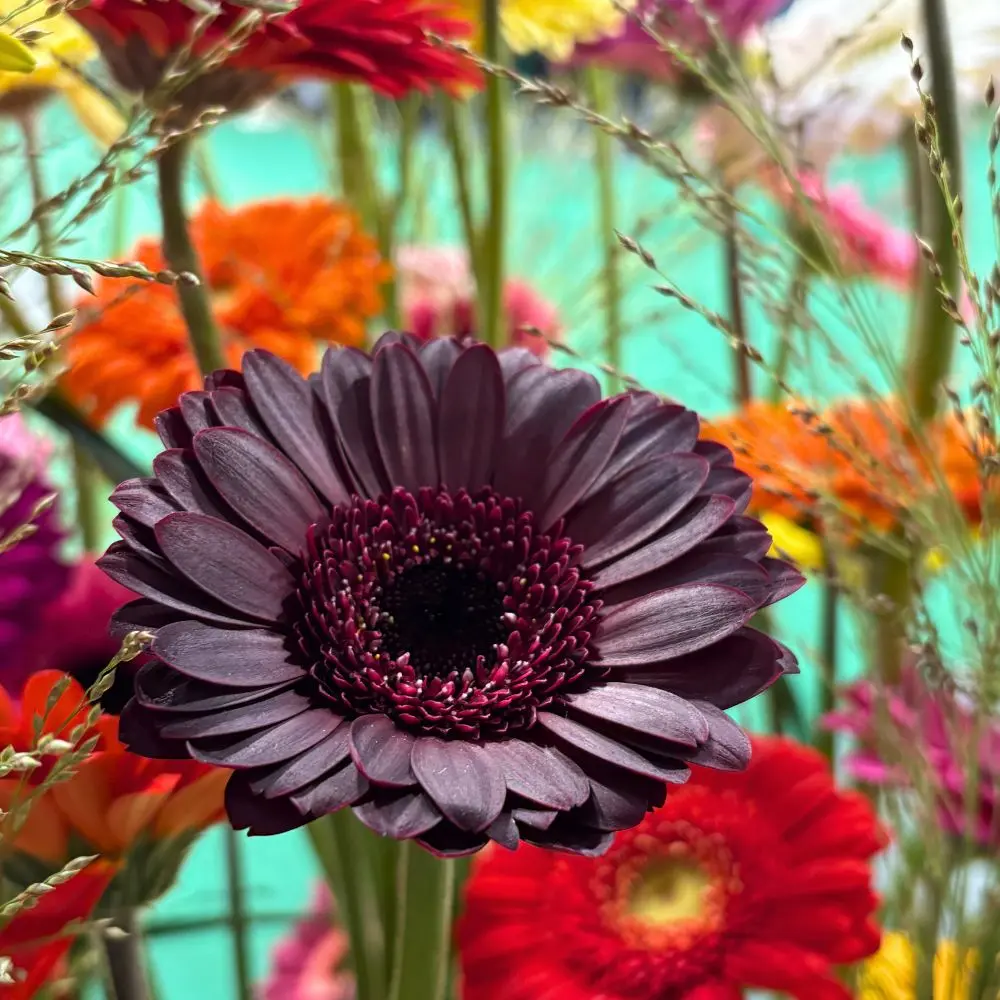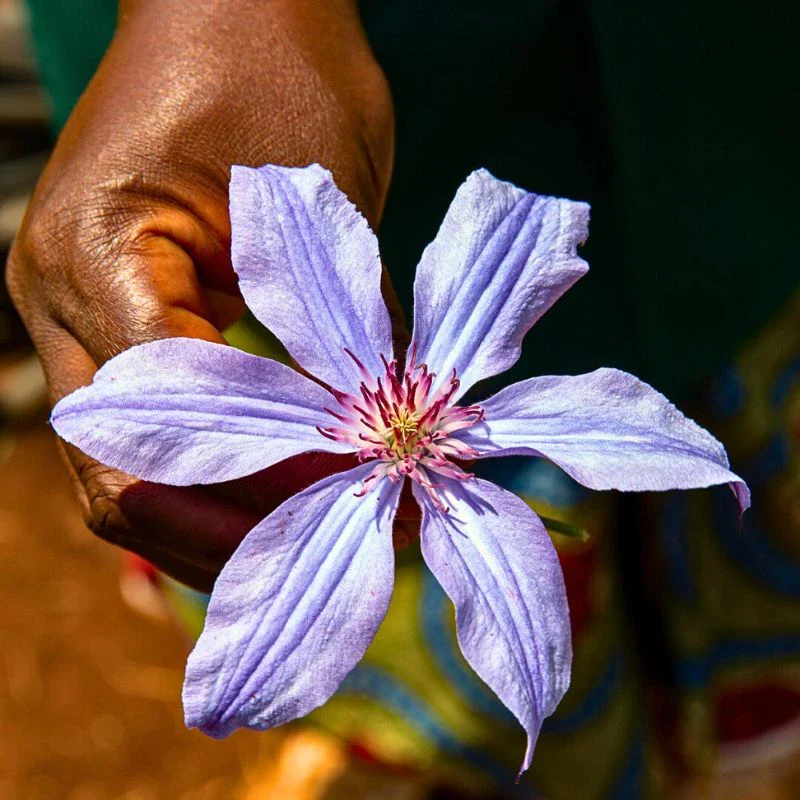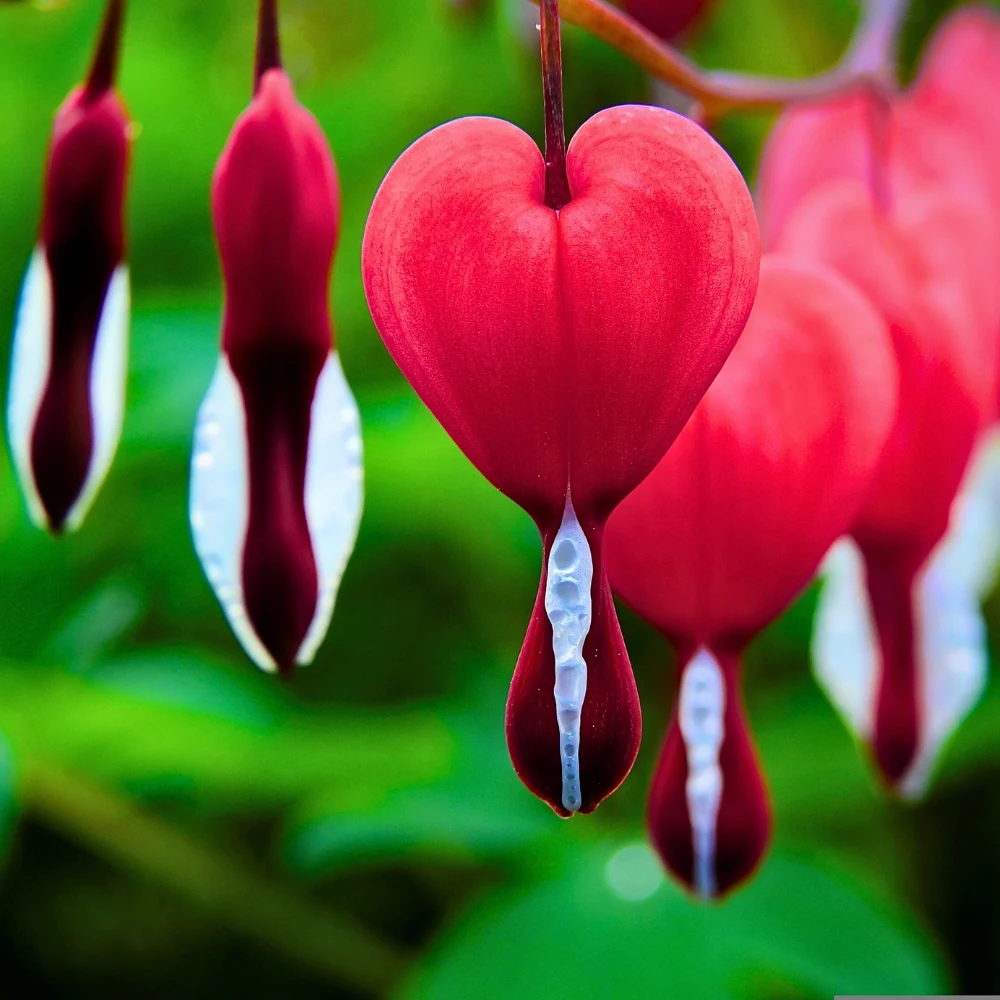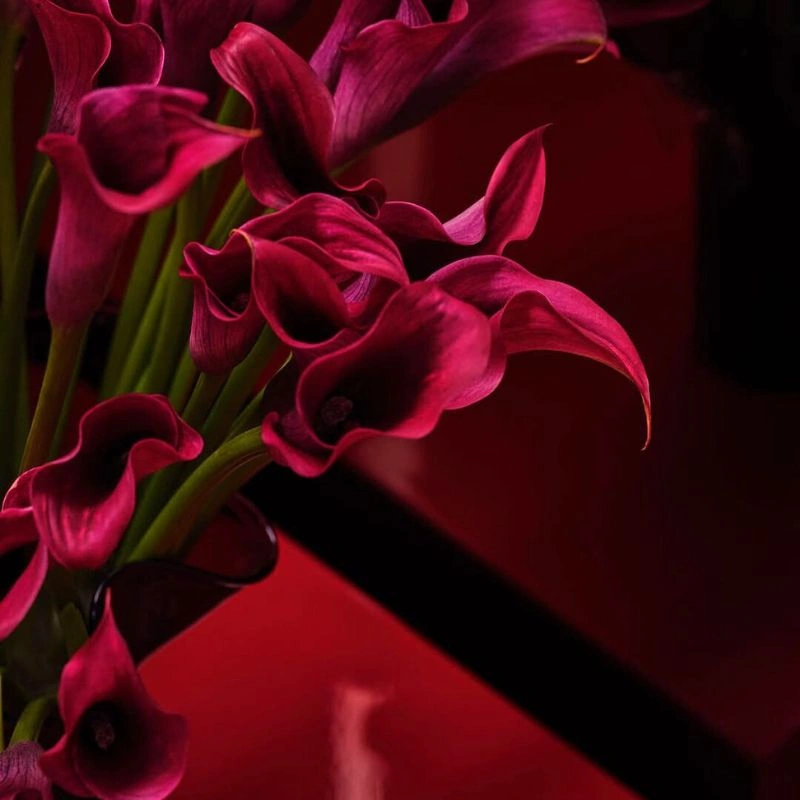The humble yet charming daisy flower may, largely, be known for its cheerful disposition and unassuming beauty. But this 'Bellis perennis' also holds a surprisingly rich range of meanings across cultures and throughout history and thus, has been cherished across different cultures for centuries. Daisy flower meaning are rich and varied but largely reflect the themes of purity, innocence, love, and resilience. From the flower's etymological roots to its modern symbolic interpretations, the daisy flower's meaning and significance continue to resonate. Practically, all its qualities make it a popular flower in gardens, art, and personal expression. Hence, understanding this flower's varied meanings allows for a much deeper appreciation of its appeal and role in humand culture and expression.
Daisy Flowers' Origins and Nomenclatures
Daisies belong to the Asteraceae family, which encompasses a diverse group of flowering plants. German botanist Paul Dietrich Giseke established the scientific classification of daisies in 1792;. These flowers have a long history, dating back to ancient civilizations. For instance, the ancient Egyptians cultivated them around 2,200 BC for their medicinal properties and used them in rituals.
Over time, different daisy flower species have evolved. There are, now, the common daisies (Bellis perennis), oxeye daisies - also called common marguerite - (Leucanthemum vulgare), and Gerbera daisies (Gerbera jamesonii). Each of these varieties has its unique characteristics and symbolism. The common daisy flower's scientific name, Bellis perennis, hints at its lasting presence. Bellis derives from the Latin word 'bellus', meaning beautiful. This is an ode to the daisy flower's aesthetic appeal. Perennis, on the other hand, implies 'everlasting', reflecting the daisy flower's perennial nature and ability to bloom repeatedly throughout the year.
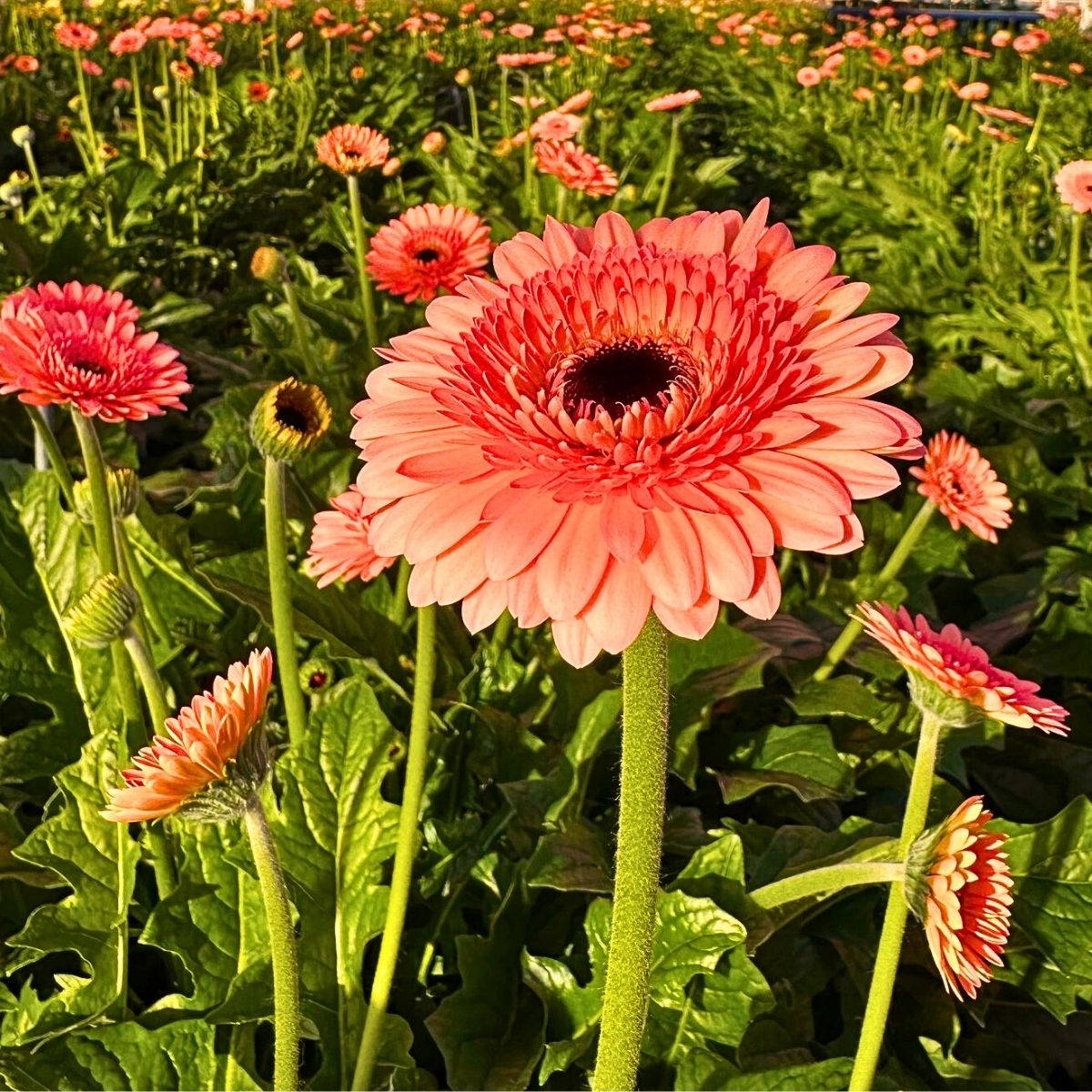
Photo by @koolhaasnatuurlijk
Still yet, the common name 'daisy' carries its own intriguing history. It's believed to originate from the Old English 'dægesēage', which literally translates to 'day''s eye'. This evocative name perfectly captures the flower's behavior. The name was inspired by the flower's behavior of opening its petals at dawn and closing them at dusk, resembling an eye that greets the day. The blossom's opening in the morning sunlight and closing at sundown mirrors the sun's daily cycle. For this reason, the connection to the sun infuses the daisy flower with connotations of light, hope, and renewal.
Daisy flowers are characterized by their bright yellow centers surrounded by white petals, although they can also appear in various colors such as pink, red, and blue. These flowers, which typically bloom from spring through autumn, are known for their hardiness and ability to thrive in diverse environments. For this, they could, also be considered a symbol of resilience.
The Daisy Flower Meaning in General
The daisy flower's widespread association with innocence and purity is arguably its most prevalent meaning. This stems from its delicate appearance and its frequent depiction in children's literature and art, often representing childhood's untainted nature. The pristine white petals further reinforce this imace of purity and virtue. Its association with innocence extends to notions of new beginnings and fresh starts. It, therefore, is a popular choice for celebrations and occasions marking a new chapter in life.
Cultural Variations in Daisy Flower Meaning
So, what does a daisy flower mean? Well, while innocence and purity are the most widely accepted meanings of the daisy, its symbolic interpretations are numerous and vary across different cultures and contexts. In some cultures, the daisy flower represents love and affection. For instance, picking daisies and using their petals to play "he loves me, he loves me not" highlights this romantic association. This playful game emphasizes the daisy flower's connection to courtship and the uncertainties of love. The number of petals remaining at the end of the game often dictates the perceived outcome of the romantic pursuit. This adds a layer of playful divination to the flower's meaning.
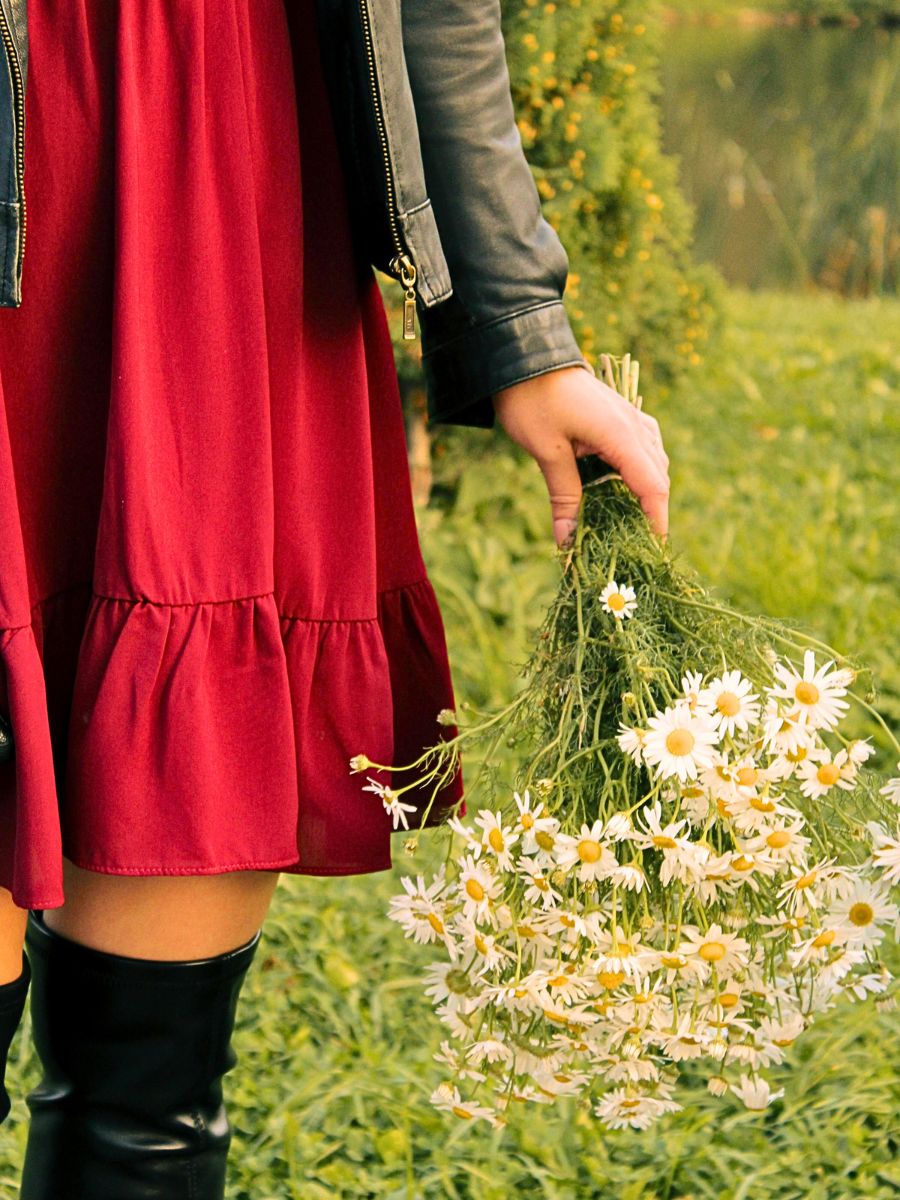
In certain parts of Europe, daisies are associated with motherhood and fertility. This connection likely stems from the flower's prolific nature and its ability to spread easily, signifying abundance and the continuous cycle of life. This association is further reinforced by the daisy flower's frequent depiction in artwork and literature related to family and domesticity.
Some cultures view the daisy as a symbol of remembrance and mourning. Its subtle beauty and association with innocence can make it a fitting tribute to those who have passed away, particularly children. And, as earlier noted, the flower's ability to endure harsh conditions can also be interpreted as a symbol of resilience and enduring memory.

Daisy Flower in Historical Contexts, Ancient Civilizations and Societies, and Today
The daisy flower meaning, also, varies significantly across cultures and historical contexts. For instance, in many instances, they are commonly linked to concepts of chastity and virtue. Such is in the case of Christianity where they are associated with the Virgin Mary.
In Victorian flower language or floriography, the daisy held a more nuanced meaning. Depending on the color and presentation, it could symbolize loyalty, simplicity, or even hidden love. The white daisy, in particular, was often associated with innocence and purity, while color variations could subtly alter its meaning. This elaborate communication system through flowers allowed for expressing emotions that might have been otherwise difficult to convey directly.
In ancient Greece, the daisy was closely linked to the Goddess Artemis, the protector of young girls and women. The flower was often used in rituals and ceremonies dedicated to Artemis, symbolizing her divine grace and the virtues she represented. Similarly, in ancient Rome, the daisy was revered as the flower of the Goddess Venus, the embodiment of love, beauty, and fertility. Romans would weave daisy garlands to adorn the heads of newlywed couples, infusing the meaning of a daisy flower with the promise of a happy and fruitful union.
During the Middle Ages in Europe, the meaning of the daisy flower evolved to represent loyal, unwavering love. Knights would often present their fair ladies with bouquets of daisies as a symbol of their devotion, and the flower became a popular motif in medieval art and literature. In addition, the daisy was seen as a symbol of purity and chastity, with the white petals representing the virtue and innocence of the wearer. This association led to the daisy's use in religious ceremonies and as a decorative element in churches and monastries.
In Celtic mythology, these flowers also hold a special place as symbols of the sun. Their bright yellow centers represent warmth and life-giving energy. Additionally, they are seen as gateways to higher spiritual understanding due to their simplicity and beauty. They are, as well, as a comforting element in grief. According to legend, when a child died, gods would sprinkly daisies on earth to comfort grieving parents.
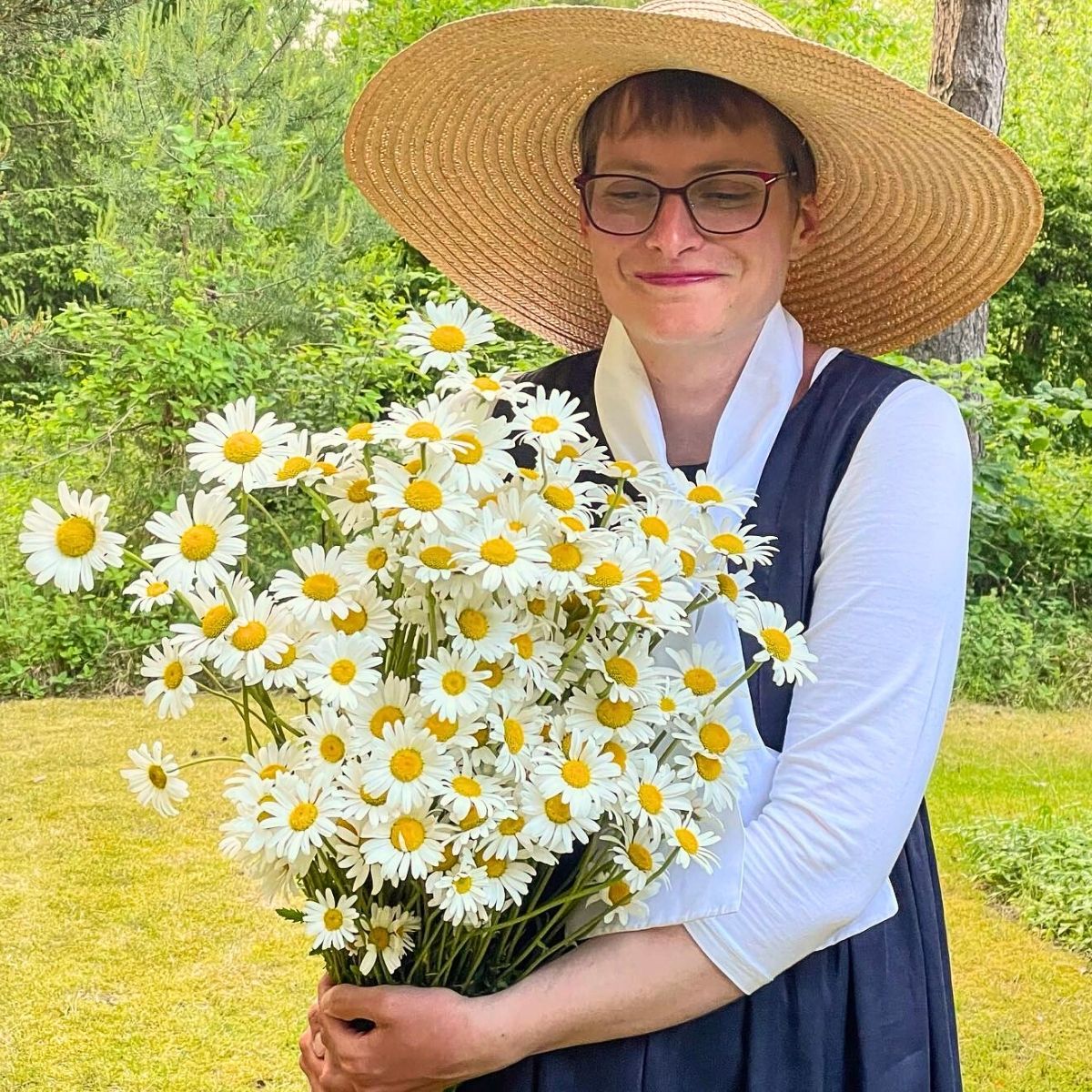
Norse mythology considers them sacred to Freya, the Norse goddess of love and fertility. In this context, they symbolize child birth and maternal love. The flower's delicate nature is, likewise, associated with romantic love and attraction. In Roman tales, the daisy is linked to Belides, a nymph who transformed into a daisy to escape unwanted attention from Vertumnus, the god of gardens. This tale emphasizes the notion that the daisy flower represents beauty that is untouched by worldly pursuits and, also, embodies themes of change and the desire for freedom from oppression.
Today, the daisy flower meaning continues to hold deep significance in various cultures and societies. In the United States, it is often associated with the concept of "true love," and as noted earlier; the act of picking the petals and saying "he loves me, he loves me not" has become a popular pastime. Moreover, the daisy's cheerful and unassuming nature has made it a favorite choice for representing simple, unspoiled beauty.
The meaning of a daisy flower can be further refined based on its color and context. A white daisy flower meaning often centers around purity, innocence, and new beginnings. These flowers are often used in wedding bouquets to represent new beginnings in marriage. On the other hand, yellow daisies can represent joy, friendship, and optimism. The vibrant yellow center contrasts beautifully with the white petals, creating a visually appealing representation of these positive emotions. Also, these flowers generally convey cheerfulness and positivity. Pink daisies, for their part, are often associated with affection and admiration. They can express gratitude or appreciation for someone special.
And what does daisy flower mean in a bouquet? The meaning often depends on the overall arrangement and the other flowers included. But a bouquet primarily composed of daisies might symbolize simplicity, innocence, and a sense of fresh beginnings.
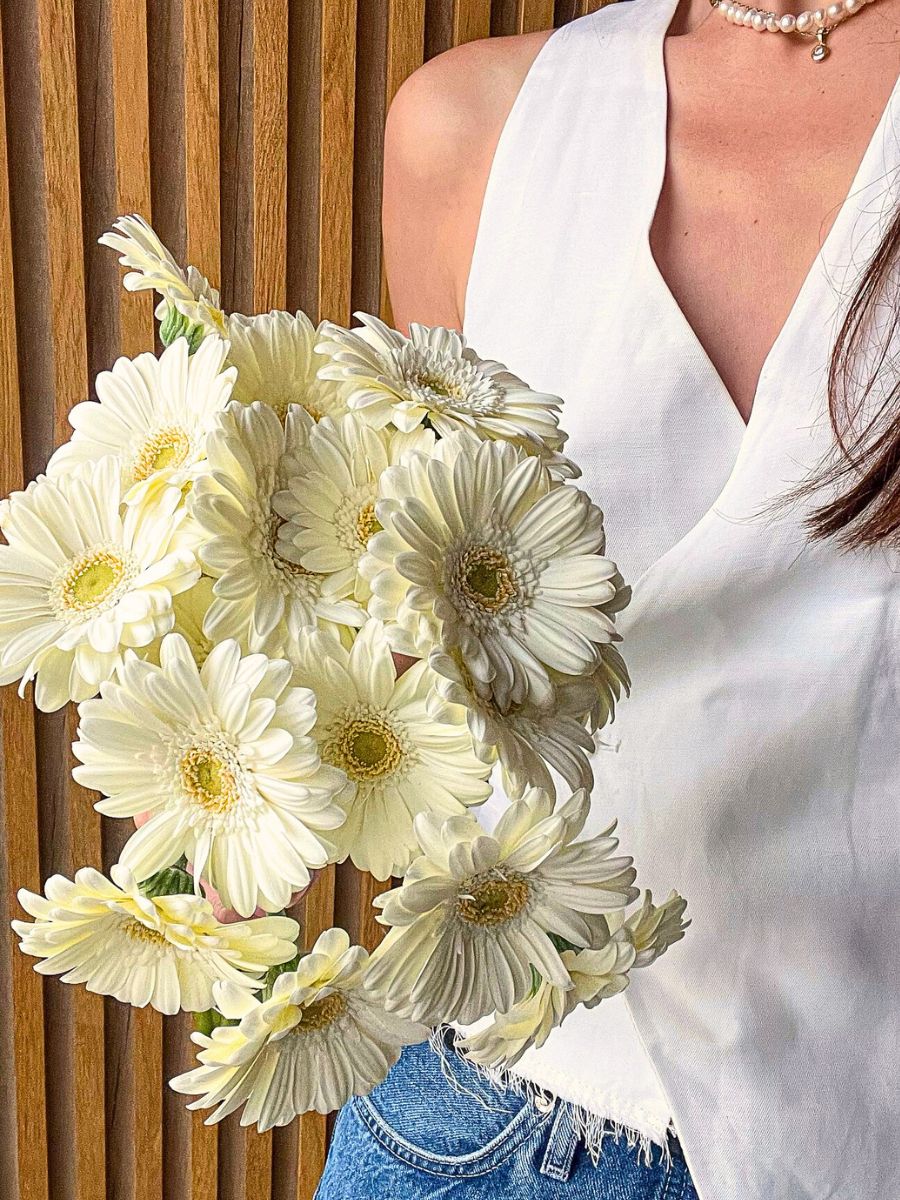
Photo by @days_of_m
The Meaning of Daisy Flowers Across Different Regions
Different regions, also, have different meanings for the daisy flowers. In Asian cultures, the meaning of daisy flowers can vary significantly. In Japan, the daisy is associated with the concept of "purity of the heart," symbolizing honesty, sincerity, and a deep connection to nature. The flower is often used in traditional ceremonies and decorations, reflecting its cultural signficance. In China, the daisy is seen as a symbol of loyal love and friendship. The meaning of a daisy flower in this context is often used to convey the idea of lasting bonds and the unfaltering support of loved ones.
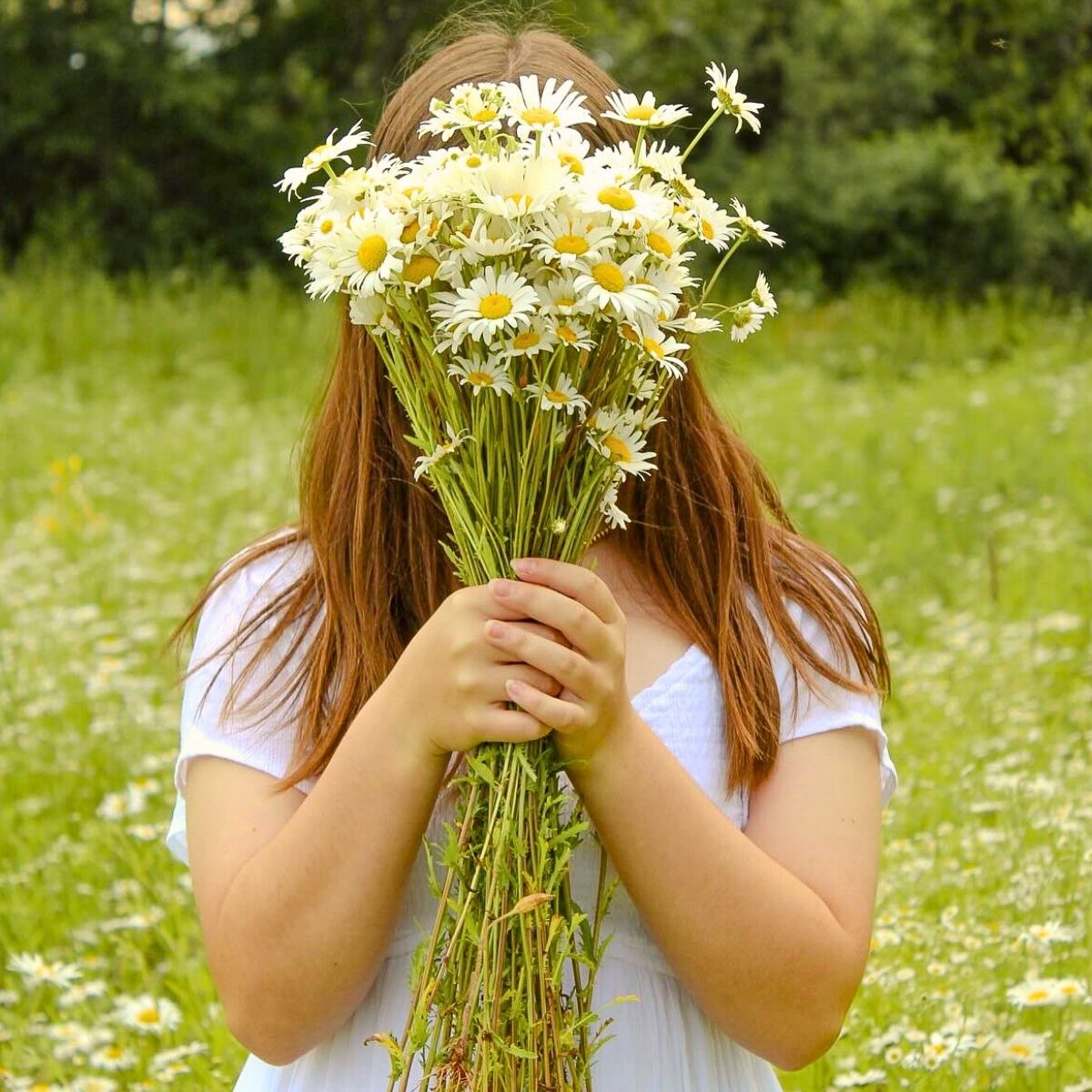
Throughout Europe, the meaning of the daisy flower has, likewise, been deeply ingrained in the cultural and social fabric of various societies. In the United Kingdom, the daisy is often associated with the concept of 'day's eye', reflecting its tendency to open and close with the sun's cycle. In Scandinavia, the flower is believed to bring good luck and protection, with the meaning of daisy flowers being tied to the idea of safeguarding against harm and promoting well-being.
In the Americas, the daisy flower meaning has also been shaped by the region's rich cultural heritage. In the United States, it is often seen as a symbol of loyal love, innocence, and purity, as evidenced by its widespread use in wedding bouquets and romantic gestures. In Latin American countries, the meaning of daisy flowers can be closely linked to the concept of "new beginnings," with the flower often being used to celebrate life events that mark the start of a new chapter.

Daisy Flower Tatto Meaning
One of the most popular ways to showcase the meaning of a daisy flower is through daisy flower tattoos. These delicate, yet striking designs have become a favorite among those seeking to honor a special moment, person, or sentiment in their lives.
So, one may wonder, what is the meaning of daisy flowers in a tattoo? A daisy flower tattoo's meaning is often personal and significant to the individual. This flower's tattoo meaning can range from representing innocence and purity to symbolizing loyalty and devotion. The versatility of the flower, basically, allows for a wide range of interpretations, thus it is a popular choice for both men and women. The design and placement of the tattoo can further enhance its symbolic significance. Generally, however, a daisy flower tattoo remains a beautiful way to express personal beliefs and values, and whatever the daisy flower means in a tattoo is determined by the wearer's intentions and personal associations.
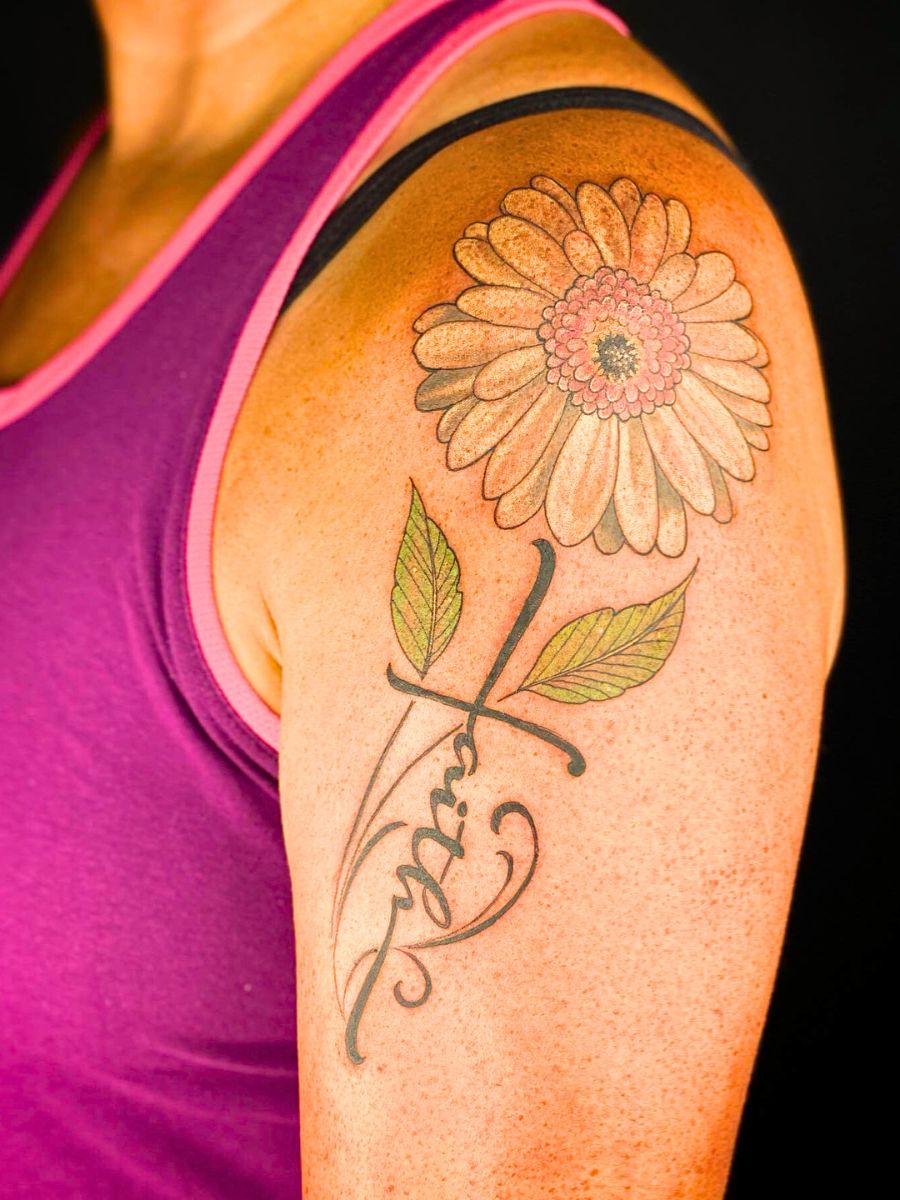
Photo by @royalsixtattooparlor
Daisy Flowers in Floral Designs, Arrangements and Decor
Daisies are a versatile and popular choice for many purposes from gardening to creating floral arrangements. They, for instance, infuse floral arrangements with a touch of charm and simplicity. In this case, their bright, cheerful blooms complement a wide range of other flowers, making them a staple in many bouquets and centerpieces. In a classic bouquet, they can be used to create a whimsical and fresh aesthetic. Paired with complementary flowers like roses, or greenery, daisies add a natural, casual elegance. Plus, their ability to blend seamlessly with both vibrant and muted color palettes makes them a go-to choice for a variety of occasions; from weddings to everyday home decor.
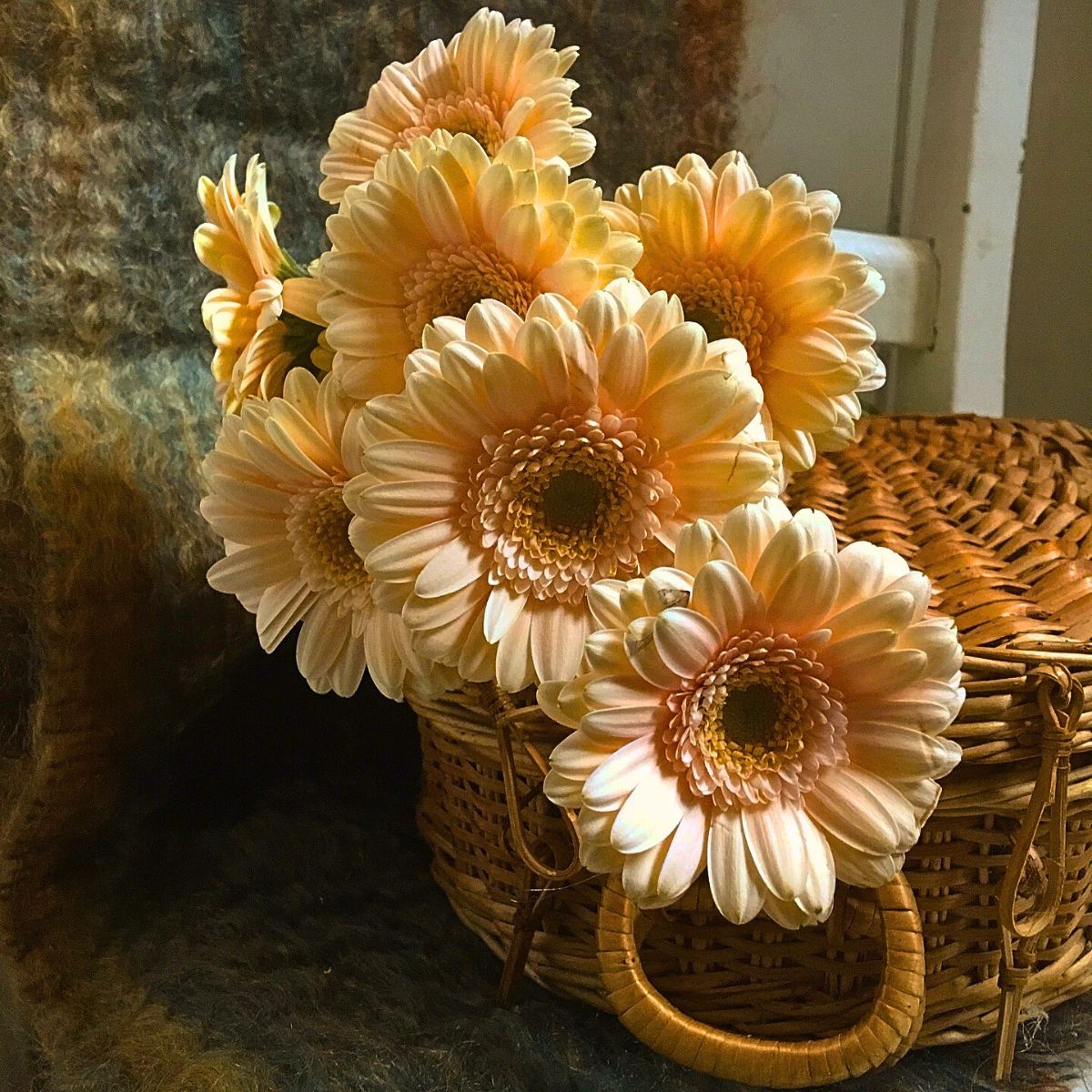
In floral design, daisy flowers can use used to create a range of visual effects. Their distinct shape and texture allow them to be incorporated into both structured, formal arrangements and more loose, organic designs. For a modern, minimalistic aesthetic, they can be used as the focal point, showcasing their simple beauty in a clean, uncluttered display. In this regard, grouping several daisies together in a single vase or container creates a striking, contemporary look. Conversely, daisies can also be used to add a natural, Bohemian touch to floral arrangements. When combined with other wildflowers and greenery, they can evoke a carefree, garden-inspired feel, perfect for rustic or shabby chic-themed events and decor.
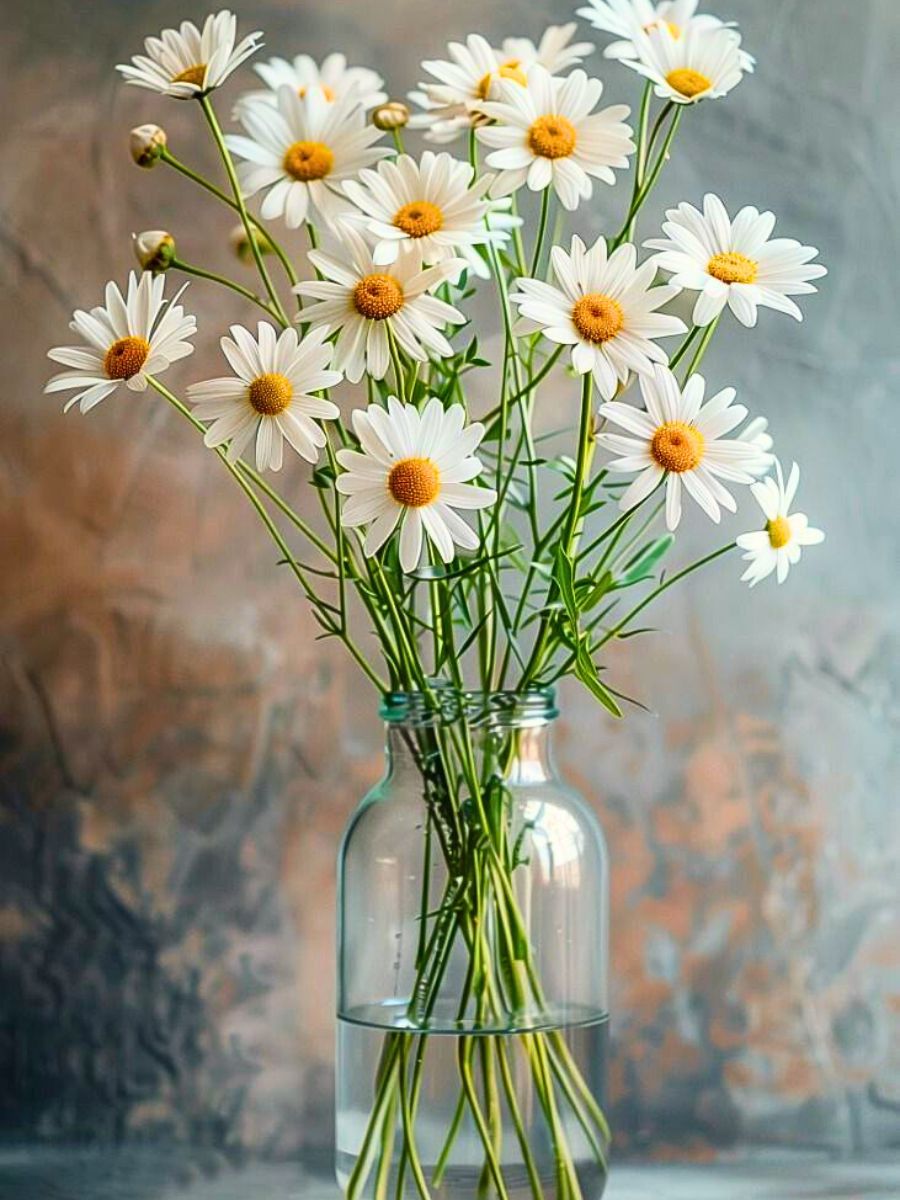
Aside from floral arrangements, daisies can also be incorporated into home decor in a variety of ways. Their cheerful appearance and versatile symbolism make them a popular choice for decorative accents and accessories. Daisy-themed wall art, throw pillows, and other textiles can, for example, bring a touch of nature and simplicity to any living space. These flowers can also be used to create unique and personalized DIY projects, such as daisy-adorned candles, ceramic planters, or wreaths. In the kitchen, daisy-printed dishware, linens, or even daisy-shaped cookie cutters can, similarly, introduce a playful, springtime vibe. Still, daisies can also be integrated into outdoor décor; such as in potted arrangements or as part of a garden-inspired landscape.
The Daisy Flower Charms From Gardens to Art to Personal Expression
Basically, the everlasting appeal of the daisy lies in its humble and unassuming beauty, versatility, and ability to evoke a wide range of emotions and associations. Its simple elegance goes beyond cultural settings and limits thus guaranteeing that it is a universally recognized and appreciated flower. The flower's presence in gardens, designs, art, literature, and personal adornments, likewise, speaks to its aesthetics and symbolic significance. Daisy flower meaning, therefore, is not a single, static concept, but rather a dynamic and changing symbol that continually charms and inspires.
Feature image by Victoria Strelka_ph , header image by Alexas Photos .

